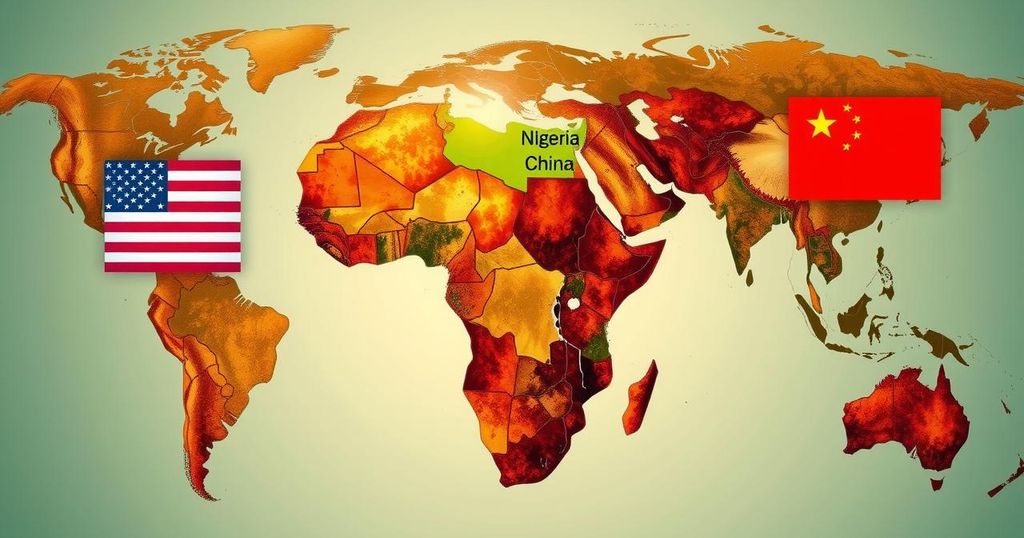Namibia is on track to elect its first female president, Netumbo Nandi-Ndaitwah, who is currently leading with 54.82 percent as votes are counted. The election has seen delays due to technical issues, with opposition parties rejecting the legitimacy of the process. Should Nandi-Ndaitwah fail to secure a majority, a runoff may be required.
Namibia is poised to elect its first female president as the election count, initiated last week, reveals promising results for candidate Netumbo Nandi-Ndaitwah. Presently, with approximately 65.57 percent of ballots counted, Nandi-Ndaitwah, the current Vice President and a member of the ruling South West Africa People’s Organisation (SWAPO), is leading with 54.82 percent. However, should she fail to secure more than 50 percent of the votes when all results are tabulated later this week, she may be compelled to participate in a runoff.
The election results, which were expected shortly after the voting on November 27, encountered delays due to technical difficulties and shortages of ballot papers, prompting an extension for several polling stations. The Independent Patriots for Change (IPC), led by candidate Panduleni Itula, is trailing with 28 percent and has outright rejected the legitimacy of the election, referring to it as a sham. Out of nearly 1.5 million registered voters, roughly 73 percent cast their ballots, with votes from 79 out of 121 constituencies currently counted.
The SWAPO party, which has governed Namibia since its independence in 1990, leads in the National Assembly election with 56.38 percent of the tallied votes. The opposition has voiced concerns regarding the electoral process and announced intentions to challenge the election outcomes legally. Accusations of logistical failings and irregularities have emerged, raising doubts about the election’s fairness and integrity. Opposition leader Itula declared, “The rule of law has been grossly violated and we cannot call these elections by any means or measure as free, fair and legitimate.”
Political discontent arises from persistent youth unemployment and socio-economic inequalities, which have led to growing disenfranchisement among the populace. The SWAPO party faces increasing scrutiny as the nation anticipates the finalized election results, which will ultimately determine Nandi-Ndaitwah’s potential as the first female president of Namibia.
Namibia, located in Southern Africa, has a history of relatively stable democratic processes since gaining independence from apartheid South Africa in 1990. However, recent elections have been marred by logistical challenges and allegations of irregularities, significantly impacting voter trust and raising questions regarding the electoral system. The country is currently witnessing its lowest levels of youth engagement and a rise in political contestation, creating a landscape teeming with both opportunity and contention in the lead-up to these pivotal elections.
In conclusion, Namibia stands at a critical juncture with the potential election of its first female president, Netumbo Nandi-Ndaitwah, amidst an increasingly contested political environment. Despite her current lead in the electoral race, the possibility of a runoff reflects the divided sentiments among the electorate. The opposition’s claims of irregularities highlight the necessity for transparency and fairness in the electoral process, especially in a nation striving to uphold its democratic principles.
Original Source: www.aljazeera.com




